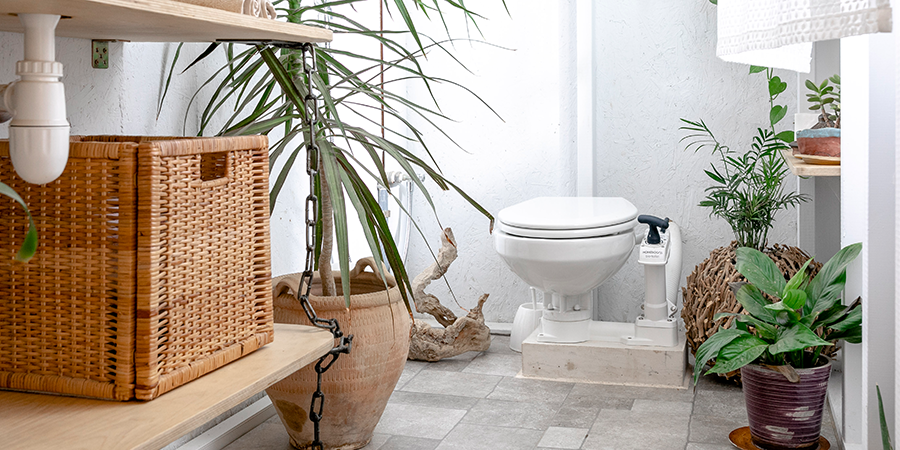Xylem and HomeBiogas partner to improve sanitation for communities lacking access to basic toilet facilities
Customer Challenge
According to global WASH data from the World Health Organization (WHO) and UNICEF, nearly half the world’s population do not have access to safely managed sanitation in their home. Of those, 1.9 billion people live with basic sanitation services, and 494 million people practice open defecation. These statistics primarily reflect situations in developing countries where population growth and urban density have limited access to sanitation resources and infrastructure, creating significant threats to public health and water quality.
HomeBiogas identified the possibility to support the development and transformation of such communities through the use of their patented Bio-Toilet, a compact and portable waste management solution that converts waste into renewable biogas for cooking – all without the need for electricity. The Bio-Toilet packs into a single box, which allows for easy transport and storage, making it an accessible solution for those living in impoverished communities or disaster-hit regions.
Customer Solution
The Bio-Toilet combines Xylem’s innovative Jabsco toilet technology with HomeBiogas’ anaerobic digestion system to create biogas from human waste. Every time the toilet is used, the contents are flushed directly into a biodigester, with each flush using just 1.2 liters (0.3 gallons) of water, and the biogas is stored in the digester until it’s ready to be used. The maximum daily biogas output — with the toilet being the only input — is up to 600 liters (158.5 gallons). The digested effluent can then drain into a sewer or septic tank, or into a drain field mulch basin.

The HomeBiogas Bio-Toilet is an environmentally conscious waste-management solution for billions of people who lack basic sanitation.
Each system comes with a specially adapted biogas stove, allowing users to cook on renewable energy anywhere, without the need for external resources such as electricity. As a result, this innovative solution is also being embraced by eco-conscious individuals who want to reduce their carbon and water footprint, as well as those living off-the-grid without a connection to a public sewage system.
In addition, the Bio-Toilet helps cut reliance on fossil fuels by enabling people to generate their own cooking gas. By eliminating the costs associated with cooking fuel, HomeBiogas provides a sustainable solution that not only delivers environmental benefits, but also protects the health, safety and wellbeing of its users. The unique solution also helps safeguard scarce freshwater supplies, with HomeBiogas Bio-Toilets conserving approximately 134,422,000 liters (35,510,536 gallons) of water globally in 2022.
Xylem Solution
The innovative HomeBiogas Bio-Toilet directly supports Xylem’s and HomeBiogas’ shared mission to develop new solutions that help make communities more resilient and sustainable. Through similar projects and partnerships, Xylem is advancing innovations with transformative social impact, many of which empower those in impoverished communities to move up the global economic pyramid.
By continuing to innovate to create economic and social value, Xylem and HomeBiogas are helping advance the United Nations Sustainable Development Goal (SDG) 6 of ensuring access to clean water and sanitation for all by 2030.
Through Xylem’s corporate social responsibility program, Watermark, in collaboration with our non-profit partners, we work to make sanitation and safe affordable drinking water accessible to all by restoring water-related ecosystems and protecting them for future generations.
In keeping with this commitment, we have signed the WASH4Work pledge for Access to Safe Water, Sanitation and Hygiene, and have expanded it to include clean water and safe sanitation for employees at home and during times of natural disasters. Based on company estimates, approximately 90% of Xylem’s annual revenue addresses SDG 6. “Additionally, Xylem is committed to providing water and sanitation to 20 million people living in under- and unserved communities by 2025.”
1 https://www.cdc.gov/healthywater/global/wash_statistics.html
Downloads
Request Information
Whether you would like additional information or are interested in getting a quote, we're here to help.


